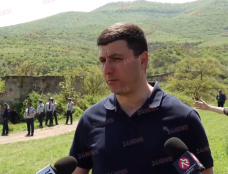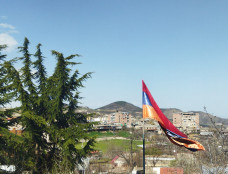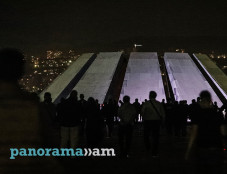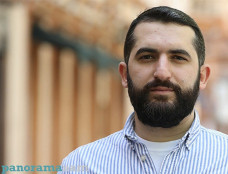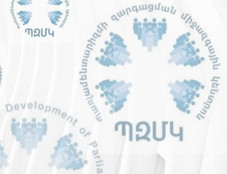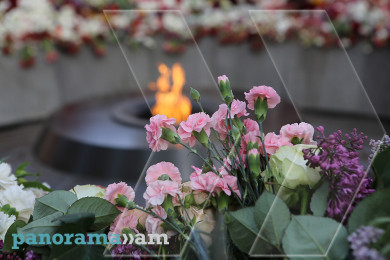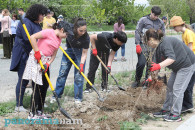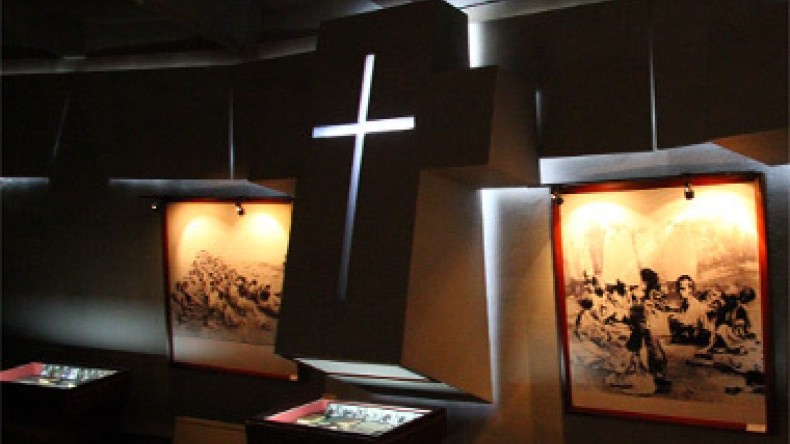
Armenian Genocide of 1915: An Overview
By JOHN KIFNER
The New York Times
On the eve of World War I, there were two million Armenians in the declining Ottoman Empire. By 1922, there were fewer than 400,000. The others — some 1.5 million — were killed in what historians consider a genocide.
As David Fromkin put it in his widely praised history of World War I and its aftermath, “A Peace to End All Peace”: “Rape and beating were commonplace. Those who were not killed at once were driven through mountains and deserts without food, drink or shelter. Hundreds of thousands of Armenians eventually succumbed or were killed.”
The man who invented the word “genocide”— Raphael Lemkin, a lawyer of Polish-Jewish origin — was moved to investigate the attempt to eliminate an entire people by accounts of the massacres of Armenians. He did not, however, coin the word until 1943, applying it to Nazi Germany and the Jews in a book published a year later, “Axis Rule in Occupied Europe.”
But to Turks, what happened in 1915 was, at most, just one more messy piece of a very messy war that spelled the end of a once-powerful empire. They reject the conclusions of historians and the term genocide, saying there was no premeditation in the deaths, no systematic attempt to destroy a people. Indeed, in Turkey today it remains a crime — “insulting Turkishness” — to even raise the issue of what happened to the Armenians.
In the United States, a powerful Armenian community centered in Los Angeles has been pressing for years for Congress to condemn the Armenian genocide. Turkey, which cut military ties to France over a similar action, has reacted with angry threats. A bill to that effect nearly passed in the fall of 2007, gaining a majority of co-sponsors and passing a committee vote. But the Bush administration, noting that Turkey is a critical ally — more than 70 per cent of the military air supplies for Iraq go through the Incirlik airbase there — pressed for the bill to be withdrawn, and it was.
The roots of the genocide lie in the collapse of the Ottoman Empire.
The empire’s ruler was also the caliph, or leader of the Islamic community. Minority religious communities, like the Christian Armenians, were allowed to maintain their religious, social and legal structures, but were often subject to extra taxes or other measures.
Concentrated largely in eastern Anatolia, many of them merchants and industrialists, Armenians, historians say, appeared markedly better off in many ways than their Turkish neighbors, largely small peasants or ill-paid government functionaries and soldiers.
At the turn of the 20th Century, the once far-flung Ottoman empire was crumbling at the edges, beset by revolts among Christian subjects to the north — vast swaths of territory were lost in the Balkan Wars of 1912-13 — and the subject of coffee house grumbling among Arab nationalist intellectuals in Damascus and elsewhere.
The Young Turk movement of ambitious, discontented junior army officers seized power in 1908, determined to modernize, strengthen and “Turkify” the empire. They were led by what became an all-powerful triumvirate sometimes referred to as the Three Pashas.
In March of 1914, the Young Turks entered World War I on the side of Germany. They attacked to the east, hoping to capture the city of Baku in what would be a disastrous campaign against Russian forces in the Caucuses. They were soundly defeated at the battle of Sarikemish.
Armenians in the area were blamed for siding with the Russians and the Young Turks began a campaign to portray the Armenians as a kind of fifth column, a threat to the state. Indeed, there were Armenian nationalists who acted as guerrillas and cooperated with the Russians. They briefly seized the city of Van in the spring of 1915.
Armenians mark the date April 24, 1915, when several hundred Armenian intellectuals were rounded up, arrested and later executed as the start of the Armenian genocide and it is generally said to have extended to 1917. However, there were also massacres of Armenians in 1894, 1895, 1896, 1909, and a reprise between 1920 and 1923.
The University of Minnesota’s Center for Holocaust and Genocide Studies has compiled figures by province and district that show there were 2,133,190 Armenians in the empire in 1914 and only about 387,800 by 1922.
Writing at the time of the early series of massacres, The New York Times suggested there was already a “policy of extermination directed against the Christians of Asia Minor.”
The Young Turks, who called themselves the Committee of Unity and Progress, launched a set of measures against the Armenians, including a law authorizing the military and government to deport anyone they “sensed” was a security threat.
A later law allowed the confiscation of abandoned Armenian property. Armenians were ordered to turn in any weapons that they owned to the authorities. Those in the army were disarmed and transferred into labor battalions where they were either killed or worked to death.
There were executions into mass graves, and death marches of men, women and children across the Syrian desert to concentration camps with many dying along the way of exhaustion, exposure and starvation.
Much of this was quite well documented at the time by Western diplomats, missionaries and others, creating widespread wartime outrage against the Turks in the West. Although its ally, Germany, was silent at the time, in later years documents have surfaced from ranking German diplomats and military officers expressing horror at what was going on.
Some historians, however, while acknowledging the widespread deaths, say what happened does not technically fit the definition of genocide largely because they do not feel there is evidence that it was well-planned in advance.
The New York Times covered the issue extensively — 145 articles in 1915 alone by one count — with headlines like “Appeal to Turkey to Stop Massacres.” The Times described the actions against the Armenians as “systematic,” “authorized, and “organized by the government.”
The American ambassador, Henry Morganthau Sr., was also outspoken. In his memoirs, the ambassador would write: “When the Turkish authorities gave the orders for these deportations, they were merely giving the death warrant to a whole race; they understood this well, and in their conversations with me, they made no particular attempt to conceal the fact.”
Following the surrender of the Ottoman Empire in 1918, the Three Pashas fled to Germany, where they were given protection. But the Armenian underground formed a group called Operation Nemesis to hunt them down. On March 15, 1921, one of the pashas was shot dead on a street in Berlin in broad daylight in front of witnesses. The gunman pled temporary insanity brought on by the mass killings and a jury took only a little over an hour to acquit him. It was the defense evidence at this trial that drew the interest of Mr. Lemkin, the coiner of “genocide.”
Newsfeed
Videos







